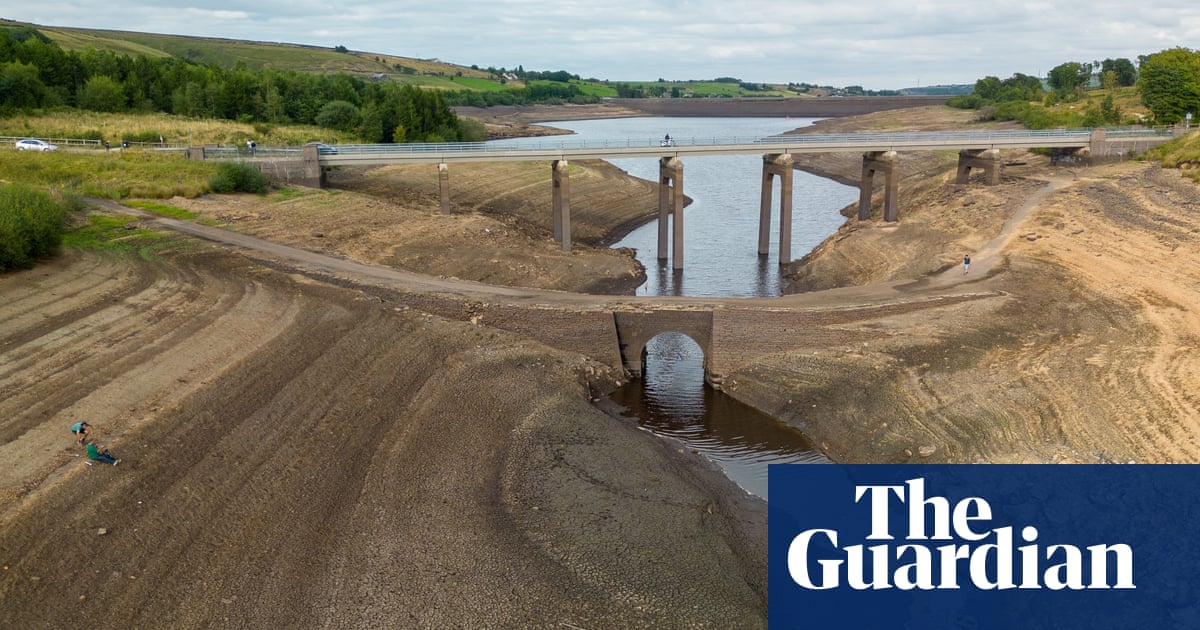Crops are already failing in England because of drought conditions this spring, farmers have said.
People should start to ration their water use, the Environment Agency said, as water companies prepare for a summer of drought. The government has also asked the water CEOs to do more to avert water shortages, and the EA said hosepipe bans are on the horizon if a significant amount of rain does not fall.
Members of the NationalDroughtGroup, who met on Wednesday to discuss their plans, told the Guardian that there is “no slack” in the system, that water companies are “woefully underprepared” for drought and the plan for many is “simply praying for rain”.
It has been the driest start to spring in 69 years. England saw its driest March since 1961 and in April the country received just half its normal rainfall. Farmers have had to start irrigating crops earlier, and reservoir levels are either notably or exceptionally low across thenorth-east and north-west of England.
According to the National Farmers’ Union (NFU) some crops are already failing, and significant rainfall in early May will be essential to avoid significant yield penalties and further losses. Livestock yields could also be at risk; grazing is not yet short, but farmers point out that fields will need a decent amount of rain to get animals through the summer.
NFU deputy president, David Exwood, said: “The dry conditions and lack of any substantial rainfall has meant farmers in some parts of the country have started to irrigate crops much earlier than normal. The extreme weather patterns we have experienced over the past few years are impacting our ability to feed the nation.”
The last time the UK was hit with a bad drought was 2022, when crops failed and London and the south-east almost ran out of water and were weeks from going into emergency measures. There were also hosepipe bans across the country. Experts at the NDG said the conditions this year are similar to those in 2022.
Reservoir levels are lower than they were this time in 2022, however. Reservoir storage across England is 84% of total capacity, compared to 90% at the end of April in 2022. The NDG heard that a number of reservoirs in the north are well below what they should be for this time of year, and that northern water companies are upping their activities around fixing leaks ahead of summer. They are already looking at extracting from rivers, months before they would generally need to, and river flows are exceptionally low at present. The NDG heard that there have been mass fish deaths above what would be expected for this time of year.
“There’s no resilience in the system,” said a NDG source, adding: “All the Environment Agency and water companies kept saying was, ‘we hope it’s going to rain’.”
Stuart Singleton-White, head of campaigns at the Angling Trust, said: “If the summer remains as dry as this spring, the driest spring since the infamous year of 1976, then we’re all going to pay the price for the complacency that has been the hallmark of the way water companies have managed our water. No new reservoirs since privatisation, alarming rates of leakage, and lack of preparation for the impacts of climate change.
“With fish kills already at a high level and many rivers at a low level for the time of year, it could turn out to be a challenging summer of drought and devastation for our rivers and fish. A repeat of 2022 is unthinkable.”
Richard Thompson, Environment Agency deputy director of water, said: “The last two years were some of the wettest on record for England, but drier conditions at the start of this year mean a drought is a possibility and we need to be prepared.“It’s heartening to see more people looking to reduce their water use and we expect water companies to do more to cut leakage and roll out smart meters.”
